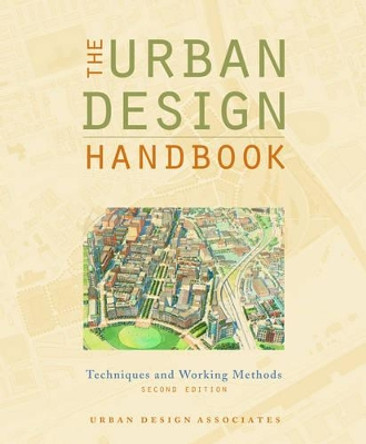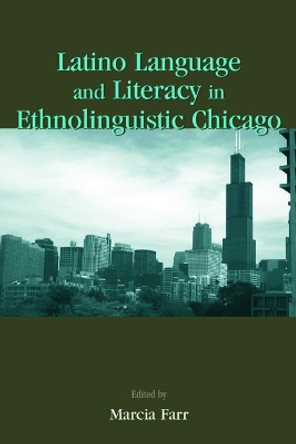Description
Providing a historic perspective on the standards and regulations that got us to where we are today in terms of urban lifestyle and attempts at reform, Douglas Farr makes a powerful case for sustainable urbanism, showing where we went wrong, and where we need to go. He then explains how to implement sustainable urbanism through leadership and communication in cities, communities, and neighborhoods. Essays written by Farr and others delve into such issues as:
- Increasing sustainability through density.
- Integrating transportation and land use.
- Creating sustainable neighborhoods, including housing, car-free areas, locally-owned stores, walkable neighborhoods, and universal accessibility.
- The health and environmental benefits of linking humans to nature, including walk-to open spaces, neighborhood stormwater systems and waste treatment, and food production.
- High performance buildings and district energy systems.
Enriching the argument are in-depth case studies in sustainable urbanism, from BedZED in London, England and Newington in Sydney, Australia, to New Railroad Square in Santa Rosa, California and Dongtan, Shanghai, China. An epilogue looks to the future of sustainable urbanism over the next 200 years.
At once solidly researched and passionately argued, Sustainable Urbanism is the ideal guidebook for urban designers, planners, and architects who are eager to make a positive impact on our--and our descendants'--buildings, cities, and lives.
About the Author
Douglas Farr, an architect and urban designer, is the founding principal and president of Farr Associates. He has served as cochair of the Environmental Task Force of the Congress for the New Urbanism, chair of the AIA Chicago Committee on the Environment, and chair of the U.S. Green Building Council's LEED for Neighborhood Development (LEED-ND) Core Committee.
Farr Associates is a Chicago-based firm focused on sustainable design in architecture and urban design. Founded in 1990, Farr Associates was the first architecture firm in the world to have designed at least two buildings to be certified with a LEED Platinum rating: the Chicago Center for Green Technology and the Center for Neighborhood Technology, also in Chicago. The firm designed its own office in the historic Monadnock Building as a LEED for Commercial Interiors pilot project.
Reviews
"The book's appealing-sounding moniker knits together smart growth, new urbanism, and green building, three movements that address the sliding scales of regions, neighborhoods and buildings. Farr advocates for transit-served, walkable neighborhoods with high-tech buildings and infrastructure." (A Daily Dose of Architecture, July 2009)
"Providing a historical perspective on the standards and regulations that got us and keep us on the course toward sprawl and unsustainable development, along with earlier attempts at reform, the book makes a strong case for Sustainable Urbanism, showing how architects and urban designers need to shape the built environment for the benefit of both humans and nature." (APADE, 2009)
"A masterpiece, it combines good writing with a thorough treatment of the subject." (The Bernard Place Bee Line, 4/22/08)
"It's not immediately obvious how Doug Farr's new book differs from the many other books in this field, aside from having a laudatory preface by Andres Duany. His careful division of the case studies into built greenfield, unbuilt greenfield, built infill, and unbuilt infill, should be a clue. It's also nice that he offiers a fairly specific definition of the s-word. Farr's book is distinguished by his systematic determination to reveal the trade secrets of sustainable design-those rules of thumb that bridge the gap between woolly generalities and highly specific case studies." (BuildingCommunities.com, February 1, 2008)
"A broadly-focused and solutions-based look at environmentally sustainable urban design. Case studies and essays written by Farr and others give a real-world context to the ideas and methods espoused in this ambitious argument on behalf of a new type urban design and development that is interrelated with nature." (Planetizen.com; 1/29/08)
"The author of Sustainable Urbanism wants to break down barriers between nature-focused environmentalists and human-focused urbanists. The book asserts that we need a radical change in how we live, not just for the health of our planet, but for ourselves. The author's ambitious goal is to make sustainable urbanism the dominant pattern of human settlement by 2030. This book is a valuable resource for anyone that is in a position to advance a more organic way of life that is more in tune with the environment." (Vector 1 Magazine, January 6, 2008)
"Sustainable Urbanism is important because it addresses the sustainable development issue from all sides and provides solutions across the vast array of disciplines that create the built environment. The book...should be a resource not just for developers...but also for city councils, mayors, governors, engineers, and voters." (Urban Land, 1/08)
"Beyond just developing a concept, however, the book acts as a comprehensive how-to manual for anyone who helps shape the environment...after setting the stage with a compelling case for sustainable urbanism, Farr provides specific and detailed standards and steps to guide readers." (Environmental News Network, 12/21/07)
"There is something for everyone in Sustainable Urbanism, the new book that tackles exactly what the title implies. Backed by an impressive range of research, tables, charts, it is a comprehensive look at how to make our development pattern more sustainable." (Joe Urban Blog, 12/07)
"Chicago architect Douglas Farr is no Le Corbusier--Who is?--yet his thoughtful new book is propelled by the same sort of visionary energy and desire to integrate architecture, city planning and nature for a better way of life. Here's the twist: Whereas Le Corbusier celebrated the car, Farr fingers it as a prime factor in creating today's sprawling, auto-dependent suburbs and all the lifestyle woes, like rising levels of obesity, they've supposedly wrought. While that's a familiar rant from the New Urbanist architects who call for compact, walkable communities, Farr wisely goes beyond them, urging a grand integration of the New Urbanism and the fledgling green building movement." (Chicago Tribune, December 2007)
"What makes his volume stand out is that it combines expertise in New Urbanism with a thorough understanding of environmental issues and techniques. The result is the most comprehensive, technically informed volume available on how to design and build places that are environmentally responsible and also gratifying to inhabit." (New Urban News, December 2007)
"makes excellent use of physical case studies, it is also concerned with the intangible forces that shape our cities..." (Building Design, Friday 15th February 2008)
Book Information
ISBN 9780471777519
Author Douglas Farr
Format Hardback
Page Count 304
Imprint John Wiley & Sons Inc
Publisher John Wiley & Sons Inc
Weight(grams) 794g
Dimensions(mm) 231mm * 206mm * 23mm







